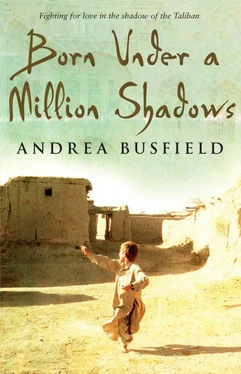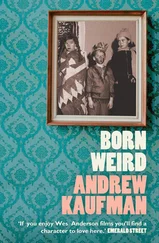While Lorenz was in Kabul, it was like seeing the city with new eyes.
While Lorenz was in Kabul, it was like seeing the city with new eyes. We hired a Land Cruiser and drove the tourist trail, visiting the bombed-out shell of Darul Aman Palace, the spectacularly renovated Babur’s Garden, and the Shah M bookstore (of Th e Bookseller of Kabul fame). We spent every evening together and our nights keeping each other warm through the long freeze of winter. By the time Lorenz had to leave, I knew my time in Kabul was coming to an end. I loved the city, but I also loved him. And so in January 2008, I resigned from my job and began the sad work of saying good-bye—to my friends, expatriate and Afghan, and to Kabul. However, in that same month, gunmen attacked the supposedly bombproof Serena Hotel. Six people died and six others were injured. The incident threw a grenade into the lap of the expatriate community. Embassies and NGOs imposed immediate lockdowns, only allowing staff out on “mission-critical” business, and the city turned into a ghost town.
Leaving now felt like a betrayal. I spent my last few days walking my dog, as I had always done, along Wazir Akbar Khan’s streets—causing one of my exasperated friends (the country manager of a risk control company) to send me a map of the embassies and NGO compounds in my area that were deemed to be bomb targets, entitled “Andrea’s IED [Improvised Explosive Device] Dog-Walking Route.”
I was leaving a country that felt like home at a time when she needed all the support she could get.
As I divided my furniture between Mohammad Sharif and Sharabdin, I was filled with sorrow. I was leaving a country that felt like home at a time when she needed all the support she could get. Afghanistan had been generous to me. I went there single and curious, and I left two and a half years later richer and wiser, with a dog and a boyfriend. One day, I will return—and perhaps with the husband and children my Afghan friends so dearly wish to see me with. Inshallah . 
A Conversation with Andrea Busfield
Born Under a Million Shadows came out of the two and a half years you spent living in Kabul. Was there a specific child who was the inspiration for Fawad? If so, could you tell us more about him?
If you are a first-time visitor to Kabul it is almost certain that you will be befriended by a child—they are everywhere. This is, of course, a sad indication of where the city is at, since all of these children will be asking you for bakhsheesh (charity). Anywhere there is an abundance of U.S. dollars—from the military bases and foreign embassies to the tourist hub of Chicken Street—you will find groups of youngsters “working” to feed their families. As a rule, the kids are pleasant, charming, and hugely entertaining. They also speak ridiculously good English.
The first time I set foot on Chicken Street, I was befriended by an eight-year-old boy called Fawad who presented himself as my “bodyguard” and who insisted on carrying my bags as I moved from store to store. Right from the start, I found Fawad, quite simply, amazing. A beautiful-looking boy with an easy smile, he worked the foreigners with his friends under the watchful eye of his older brothers and widowed mother. The family was obviously poor, yet Fawad was always a ray of sunshine. His love of life was astonishing—and incredibly humbling.
Therefore, when I first thought about writing a novel, and more precisely a novel narrated by a young boy, I wanted my hero to be as charming and as intelligent as the real-life Fawad from Chicken Street. This is why I took his name—it is my small tribute to a very special little boy.
Today, Fawad and I are still in regular contact—he calls and lets my phone ring twice before hanging up when he wants to say hello; I then call him back—and, though I’ve tried to explain why I’ve used his name in my book, I’m not sure that he realizes what a wonderful impact he had on my life. Hopefully, when he is older he will come to understand that.
I wanted my hero to be as charming and as intelligent as the real-life Fawad from Chicken Street.
The community of expatriates living in Kabul is vividly depicted in your novel, and Georgie and her two roommates are quite involved in their local community. Georgie’s romance with Haji Khan is particularly moving. Did you witness many romances between foreigners and Afghans when you lived in Kabul?
Although marriages between Afghan men and Western women have been documented, it is by no means the norm. Even though I have heard of relationships taking place, it is rare to witness such affairs because they are conducted in private and well away from the public eye, out of necessity. Afghanistan remains a very conservative society and there are rules to follow, both traditional and religious. There is no dating culture in Kabul!
In my experience, Afghan men are charming, chivalrous, and hard as nails—both inside and out. I know this because I count some of them among my best friends! If a Western woman seriously wanted to enter into marriage with an Afghan man it would be extremely testing—and she would almost certainly have to conform to the strict rules of Afghan society and ideally convert to Islam. However, when you truly love someone anything is possible and, I guess, that’s the beauty of it.
On the more general topic of expat relations with Afghans, most of the foreigners I know in Kabul enjoy genuine friendships with the locals they work with or meet by chance. The strict rules that pose such an obstacle to a romantic relationship do not apply to the same degree in a social context. It would be hard to find a more hospitable place on earth than Afghanistan.
One thing your novel explores is how vibrant the city of Kabul is, despite the poverty of many of its residents. When you lived there, was it difficult to face the lack of resources of many of the Afghans? Was it difficult to write about?
I didn’t flaunt my comparative wealth while I was in Afghanistan—while some had armored Land Cruisers I traveled in a battered Toyota Corolla. However, it’s hard not to feel like a heel when you are being driven to work in the depths of winter and you spy a child walking in the snow in bare feet. The poverty is appalling, but you do what you can to help where you can.
The average life expectancy is forty-four. This is the reality. The other reality is that Afghans are bewilderingly stoical.
I certainly didn’t find it a difficult subject to write about; poverty is a fact of life for the majority. You can’t ignore it. Besides, I wanted people to understand how challenging life is for ordinary Afghans. Afghanistan has the world’s second-highest infant mortality rate. The average life expectancy is forty-four. This is the reality. The other reality is that Afghans are bewilderingly stoical.
Your work as a journalist has taken you all over the world—what prompted you to turn to writing fiction? Was it a challenging switch for you to make?
I’ve written for various media outlets, but I also spent nine years working for tabloid newspapers, so some might argue that the transition to fiction wasn’t that great a leap to make! Of course, I’d beg to differ.
Like most reporters, I’d always harbored romantic dreams of becoming an author, but it was only in Afghanistan that I seriously decided to have a crack at it. To cut a very long story short, my boyfriend, a captain in the Austrian army, had finished his tour in Kabul—where we met—and I was desperately trying to work out a way to join him in his homeland. (There’s not much call for non-German-speaking ex-tabloid hacks in Vienna.) So, one morning I decided I would write a book. I knew it would have to be about Afghanistan because it was a country I had grown to love and one that I felt was little understood. Although there are numerous fantastic history books, travelogues, and novels about the place, I wanted to capture the beauty I found there—the fun, the laughter, the love. Therefore, I opted for a romantic plot and decided it should be narrated by a hero who was still young enough to see the good in life—and bounce back from tragedy. Within forty minutes I’d sketched thirty chapters and that evening I started writing. Four months later the first draft was finished. And two months after that I said good-bye to Kabul.
Читать дальше













